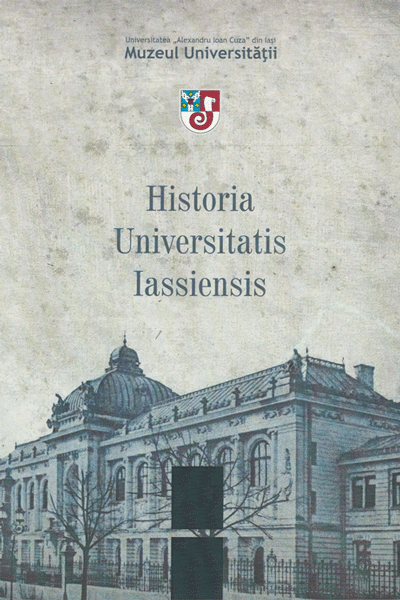Asociaționism cultural și academic în perioada interbelică: Reuniunea Femeilor Creștine din Cluj, 1925-1931
Cultural and academic associationism in the interwar period: The Meeting of Christian Women in Cluj, 1925-1931
Author(s): Ana-Maria StanSubject(s): Cultural history, Social history, Gender history, Interwar Period (1920 - 1939)
Published by: Editura Universităţii »Alexandru Ioan Cuza« din Iaşi
Keywords: associationism; elites; nationalism; students;
Summary/Abstract: This paper is an in-depth study dedicated to a very special interwar feminine association – The Reunion of Christian Women (R.F.C.). The association was created in the Transylvanian city of Cluj in 1925, after a series of economic and social difficulties – including massive anti-Semitic demonstrations requesting Numerus Clausus – had shaken the Romanian universities and aimed from its very beginning to focus on helping ”Christian students and pupils” or, in other words, to encourage and protect the education of Romanians, in a city which was still largely dominated by the Hungarian and Jewish elites. The peculiarity of the R.F.C. also resided in the fact that most of its members were wives of the academic staff working at the Romanian University of Cluj or highly trained, even academic women themselves. The author has split the article in three main parts. First, there is a short presentation of the socio-economic and cultural scene of the city of Cluj in the 1920s, arguing about the necessity of such an organism as the R.F.C. In the second part, we present the rules which governed this society, its main and secondary objectives, as well as provide a biographical and prosopografical analysis of its ruling committee and its different types of members. The third part describes in detail the strategies and activities which were decided upon and carried out by the Reunion of Christian Women, commenting upon their success and/or efficiency. These data outline that the R.F.C. had significant financial funds and was one of the most influential, respected and well-managed civil associations in the interwar Cluj. Besides struggling to set up a student restaurant and a student hostel, the R.F.C provided ample and varied support to the youngsters, paying tuitions and exam fees, providing clothes, food and teaching supplies and even helping them to find jobs and start an independent life. Its members were also very interested in debating the role and place of women in the modern society, considering that women had to be taken into account as “partners or collaborators of the State”, especially in the educational and cultural fields. Unfortunately, there is no documentary evidence of the Reunion of Christian Women beyond the year 1931; consequently a complete look at its evolution is not possible. Despite this circumstance, the present research offers enough information in order to situate the Reunion of Christian Women from Cluj at its due place in the academic, cultural and feminine Romanian history and stimulate further studies on similar topics.
Journal: Historia Universitatis Iassiensis
- Issue Year: 2010
- Issue No: 01
- Page Range: 131-150
- Page Count: 20
- Language: Romanian

